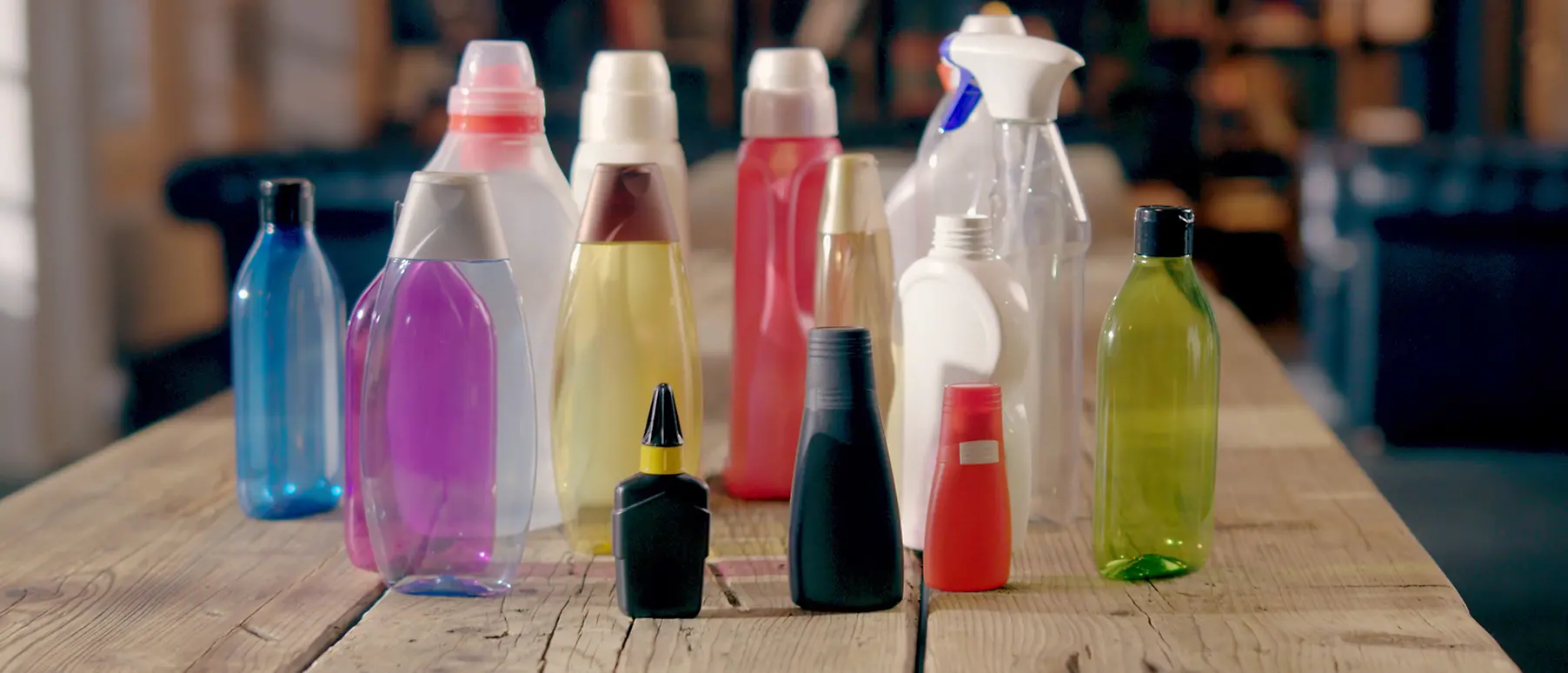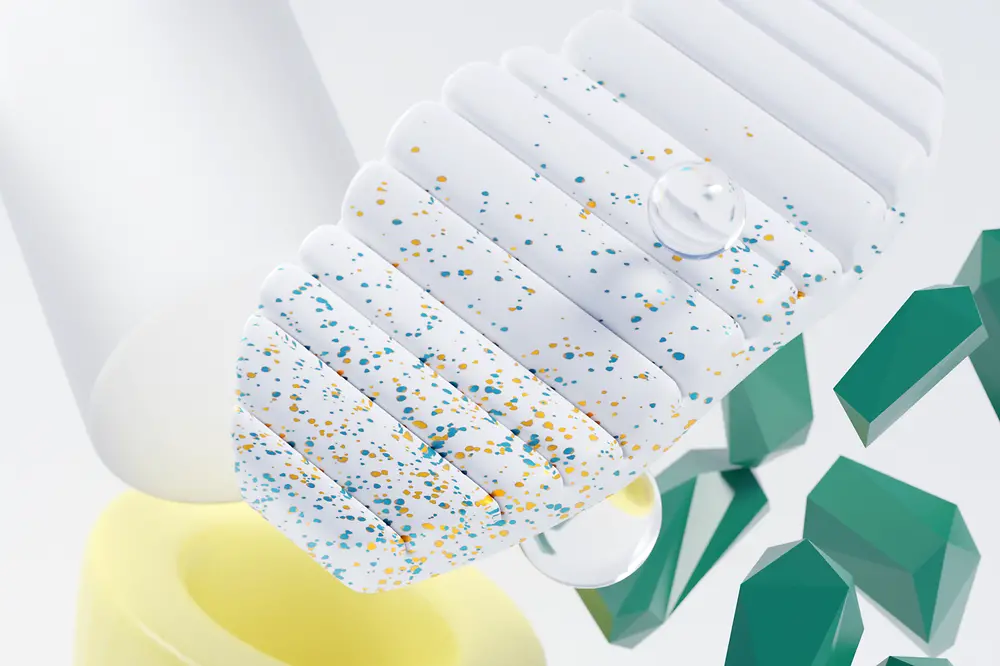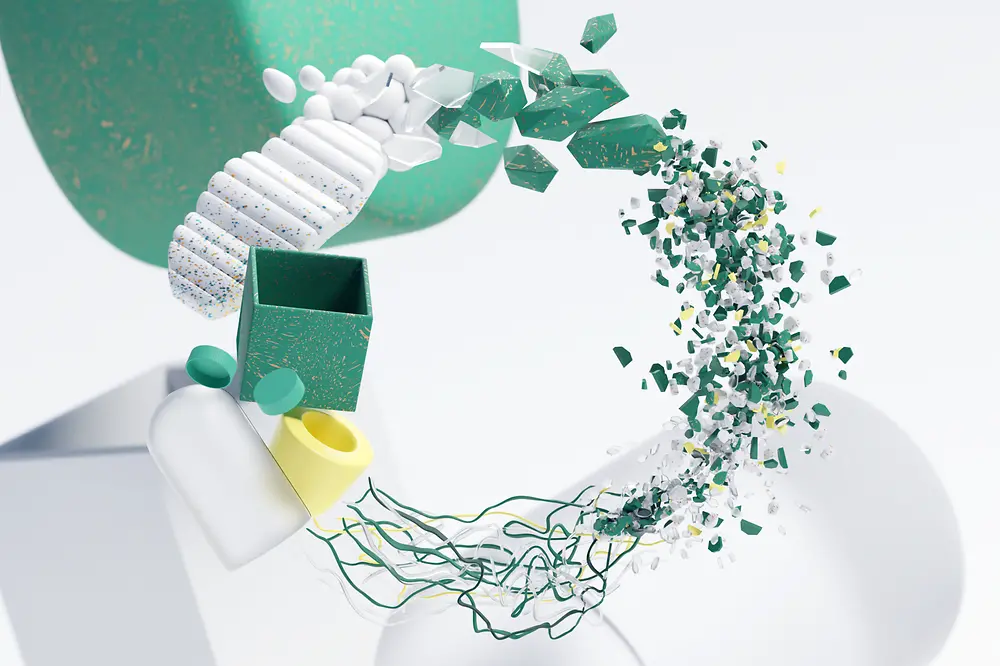Learn more about Henkel Brands & Businesses in UK & Irelands: Includes useful information about the brands, technologies and latest innovations in our business areas: Henkel Adhesive Technologies and Henkel Consumer Brands.
“We stand for a responsible approach to plastic”
Currently, hardly any other topic is more hotly discussed than plastic and the question of how we can avoid plastic waste ending up in the environment. From our perspective, there is only one way to do that: We must create a circular economy for plastic, where the material can be recycled and given new value. In this goal, everyone must contribute to establish appropriate recycling systems, including plastic manufacturers, consumer goods companies, retailers, consumers of plastic, as well as politicians. At Henkel, we stand for a responsible approach to plastic; we use as much recycled material as possible in our packaging and ensure that this can be recycled again and again. We have given ourselves concrete goals and work continuously to achieve them. We are on the right track, but there is still much to do.
The public sometimes controversially discusses questions about plastic packaging and recycled material and in response, we offer an open and objective dialogue, and transparency. To some of the most recent questions about the topic of plastic, we would like to make our position here.
Some criticize that not all recycled material is the same. Can recyclate be “good” or “bad”?
This question is not about good or bad. The definition of recyclate or reprocessed plastic waste is regulated by concrete stipulations from the German Institute of Standards (Deutschen Instituts für Normung or DIN), to which we hold ourselves. Of course, there can be recyclate of differing quality.
Where does this recyclate from?
There are two types: post-consumer recyclate (PCR) is plastic waste from the end consumer’s household, such as recycled PET bottles. We use up to 99 percent post-consumer recyclate.
And what else is there?
There is also recyclate that comes from the plastic waste made during production in other companies. This is called pre-consumer recyclate or post-industrial recyclate (PIR). We use this only in exceptional cases, when the necessary amount or quality of post-consumer recyclate is unavailable. For us, that proportion is less than 1 percent. From our perspective, we can’t categorically rule out any solution. Every piece of plastic that is recycled and does not end up in the environment or is incinerated makes a contribution.
There are critics who see reusing industrial plastic waste as recyclate as consumer deception. What do you say to this accusation?
We reject this statement entirely. In this regard, there is a clear DIN standard that states plastic from consumer households as well as from industrial manufacturing can be recyclate. Naturally, we don’t use our own industrial packaging waste as recyclate! We use plastic waste that comes from the production of other branches of industry exclusively. Exactly as it is stated in the DIN guidelines.
But what about this recent lawsuit?
To clarify: the lawsuit is about one single product line from our extensive product portfolio, and of that, only one component – namely the hanging baskets of the toilet rim blockers – being made from post-industrial recyclate. One competitor criticized us for having the word “recycled” on the label. We are convinced that the label “recyclate” is appropriate because of this DIN standard. However, to quickly close this isolated incident, we adjusted this communication to the product line. And continue to concentrate on promoting the topic of recycling further.
How do we get to a functioning circular economy?
There isn’t just one solution or one way. We must be active on all different levels, which is how we develop new sustainable packaging for our products. At the same time, we work closely with suppliers, packaging manufacturers, retailers and scientific institutes. Moreover, we have committed to cross-industry initiatives. In Germany, for example, we are a founding member of the Rezyklat Forum (Recyclate Forum) from dm Drogerie Markt (a German drug store chain), which brings together important industry partners. Together, we are taking concrete measures to increase the recycling of packaging. Henkel is active around the world, and so is our commitment to initiatives like the New Plastics Economy Initiative of the Ellen MacArthur Foundation and the Alliance to End Plastic Waste.
We must raise awareness in society that plastic does have value and every one of us can contribute. From one region to the next, the situation is very diverse. While some countries have established recycling systems, in other regions, the entire infrastructure for it is missing. This is where everyone is in demand: industry, politics and consumers. Plastic waste is one of the largest global challenges of our time. We can overcome it, but only if we work together.
CIRCULAR ECONOMY
TURNING END OF LINE INTO NEW BEGINNINGS
Everyone is talking about it: the circular economy. Packaging materials like plastic have many advantages, but their omnipresence has created a new set of challenges for us. How can we promote a responsible use of plastic within a circular economy and combat the problem of plastic waste through recycling?









